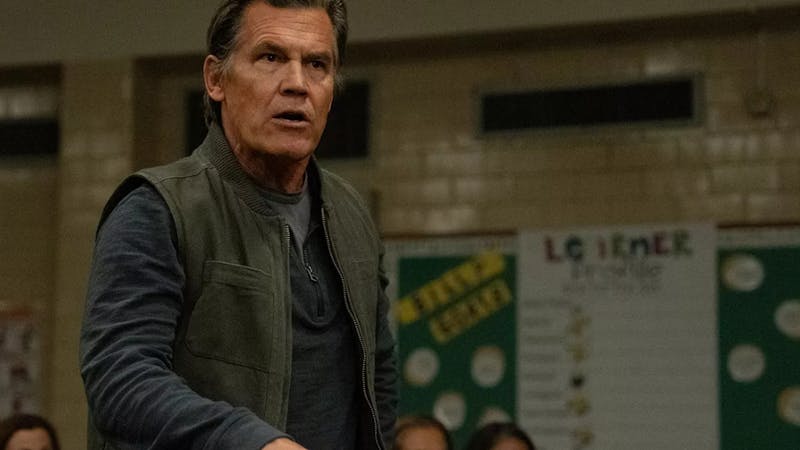“Ginny & Georgia” Season 3: A Messy, Magnetic Villain Origin Story
Rating: ★★★★
I’ll admit it: I came into “Ginny & Georgia” expecting another glossy Netflix soap that looks great in a weekend binge but evaporates from memory by Monday. By the end of season three, I realized I’d been doing something I rarely do with shows like this: I was taking notes. Not on the plot (though it’s as twisty and outrageous as ever), but on the characters. I loved them. I was grinning from ear to ear watching them scheme, stumble and monologue their way through impossible situations. That’s when I knew: this show had done something right.
There’s a moment midway through the season that crystallizes everything fascinating and frustrating about “Ginny & Georgia.” Georgia Miller (Brianne Howey), under house arrest, sits in her bathroom preparing for her murder trial. She’s improvising makeup with toilet paper and commissary supplies, ankle monitor gleaming. It’s absurd, it’s ingenious and it’s deeply humane. In that scene, she’s a character you want to root for, even though you absolutely shouldn’t.
The brilliance of season three lies in how it makes you confront that contradiction. For two seasons, the series has invited us to cheer for Georgia as she eliminates abusive men and manipulates her way into stability for her kids. She’s a survivor, a mother, a self-styled protector. This season asks a more uncomfortable question: what happens when your anti-hero crosses a moral line you can’t explain away? The surprising answer is that you root for her anyway and then sit with the discomfort of realizing it.
And it’s not just Georgia. What became more interesting this season was how Ginny (Antonia Gentry) began to inherit some of her mother’s traits. Not the mascara tricks or wedding-planning prowess, but the deeper survival strategies — reading people, keeping secrets, shaping the truth to fit the moment. She doesn’t just live in Georgia’s world; she starts to operate like her. It’s subtle at first, but by the finale, the through-line is clear: Ginny & Georgia is a mother-daughter villain origin story.
As a writer, I found it hard not to treat this season as a case study in building compelling villains. The plot? Outrageous, overstuffed, sometimes just straight cringe. The characters? Consistently magnetic. Georgia works because the writers give her a code — protect the kids at all costs — and then repeatedly put her in situations where following that code means doing the wrong thing for the right reasons. Ginny works because she’s still figuring out her code, and every bad decision she makes feels like a warped act of self-preservation. Both are deeply flawed, sometimes infuriating, but impossible to ignore.
It helps that the performances are fully committed. Howey plays Georgia as a high-wire act: charm as misdirection, vulnerability as a weapon. Gentry gives Ginny a quieter intensity, letting us see the calculation behind her guarded expressions. Katie Douglas (Abby) and Sara Waisglass (Max) continue to turn their supporting roles into mini masterclasses on how to play teen drama without slipping into caricature.
Is the season perfect? No. It still leans too heavily on soap-drama mechanics: cliffhangers, padded subplots, melodramatic pacing. There are moments when the moral tension gets drowned out by courtroom implausibility or another high-school meltdown. But when the show stays locked in on Georgia and Ginny as a duo, it flies into my drama-starved heart.
The most interesting thing about Season 3 isn’t the trial verdict, the romantic entanglements or even the town’s endless supply of secrets. It’s how the show forces you to interrogate your loyalty as a viewer. You know Georgia’s done terrible things. You know Ginny is on a slippery slope. And yet, you cheer. You keep watching. You want them to win, even if “winning” means outmaneuvering the law or emotionally outflanking someone who deserved better.
In the end, “Ginny & Georgia” succeeds where so many dramas of its kind fail: it builds characters who earn your attention scene after scene, even when the plot strains credulity. This season may not change your moral compass, but it will make you aware of how easily the right mix of charisma, chemistry and calculated chaos can bend it.
If Season 4 can trim the excess and keep that focus, we might get an even sharper portrait of this messy, magnetic duo. But for now, I’m just grateful for a show that makes me think, feel and take notes.
More from The Rice Thresher

Thresher’s guide to arts and entertainment in Houston
New to the city? Unsure how to spend your time procrastinating on homework? You’re in luck — Houston is a playground if you know where to look, and most of it is an easy metro ride or short commute from campus. Here’s a starter pack of spots that deliver fresh air, brain food and the occasional “wait, this is in Houston?” moment.

Thresher’s Lollapalooza report: Who ruled Grant Park?
Chicago’s Grant Park ran on pure dopamine this weekend — surprise debuts, late-but-worth-it arrivals, confetti, fireworks and at least three mass sing-alongs an hour. From Joey Valence & BRAE road-testing new indietronica to A$AP Rocky cracking open his vault, T-Pain turning the field into karaoke and Olivia Rodrigo summoning Weezer, Lollapalooza felt like a live-wire mixtape. Doechii built a universe, TWICE made history and Sabrina signed off with a superstar-cementing finale. Here’s what actually lived up to the skyline.

“Weapons” Aims for the Heart of American Horror but Misses Its Mark
I first heard of “Weapons” when I noticed it sitting at a perfect 100% on Rotten Tomatoes. That number has since dropped, but it speaks to the wave of acclaim the film has ridden since its release. And while I don’t agree with the score, I get why the hype built so quickly. “Weapons” is the kind of horror-comedy that blends unsettling dread with moments of absurd humor, a tonal balancing act that feels rare in a studio horror film.

Please note All comments are eligible for publication by The Rice Thresher.